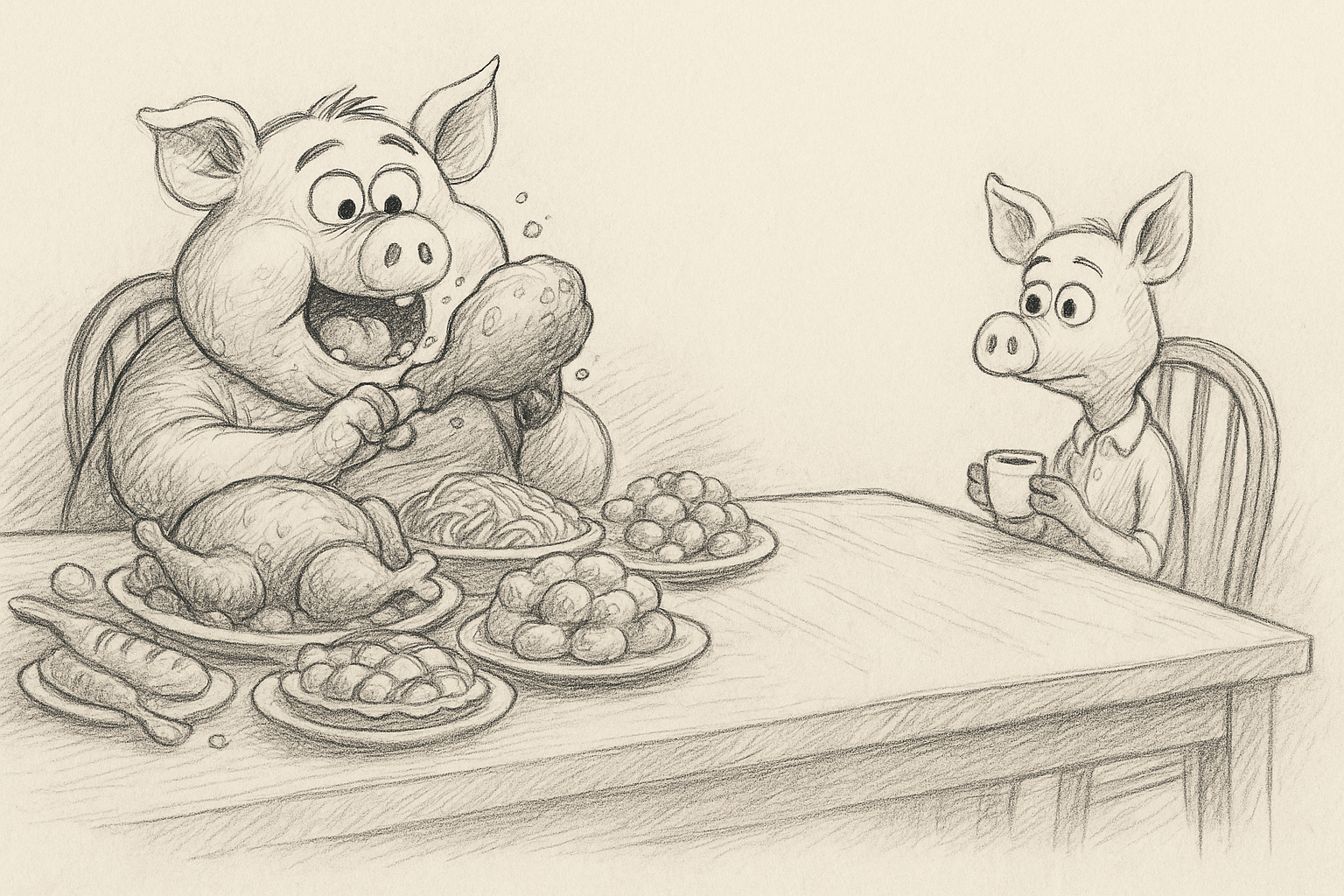Rewriting My Relationship with Food
Growing up, I was a skinny kid; wearing oversized t-shirts, and a metabolism that ran like a greyhound. That all changed when we moved villages, landing in a place where my family ran an Irish pub and restaurant. Food was everywhere. Chips with everything. Rich stock in the gravy. Deep-fried this and farmer-portioned that. Slowly but surely, I started gaining weight - not out of neglect, but out of proximity. The food was often healthy but the portion sizes enormous. Ketchup on all the things, I ate everything at all times.
Sport became my saving grace. Football, hurling, anything that gave me an excuse to move with friends. I later shot up to six foot and leaned out significantly. But it wasn’t just exercise that shaped my body - it was place and pace. When I moved to China in my twenties, the pounds dropped fast. I lost 10kg in the first month alone, largely due to working hard, partying harder and a cultural shift around meals. I even had to buy all new clothes because my usual suit size now hung on me like a curtain.
Then came the return to Ireland. And with it, depression. The comfort of home was now soaked in takeaways, greasy bags of chips, and late-night food to fill other voids. I started emotionally eating—sometimes out of boredom, more often out of sadness. Food became both the celebration and the crutch.
Australia was next. A new country, a new pace. I dropped 10kg in the first few months simply from walking everywhere. commuting across the city. Alas convenience always finds a way, I found taxis, buses, and shortcuts. Weight crept back in; this time with vengeance topping out at 118kg. Stress of working full time with a full time university commitment added to the pile. A decade ago, I relocated to Nepal, where I developed a deep love for offal, simi, lentils, and mutton. That culinary enthusiasm led to a full-blown bout of gout; a painful reminder that even well-seasoned habits can come at a cost.

Last year, something shifted. I discovered intermittent fasting. At first, it was curiosity, then commitment. I tried 16:8, then 18:6. One Meal a Day (OMAD) became an occasional friend. I even completed 2-day and 3-day fasts. And then a 5-day one. I dropped 14kg in a few months. I felt sharper, lighter - not just in body, but in mind. All of my old suits were loose dramatically so.
Then I went back to Ireland for a holiday. Old comforts returned with a full plate. Pints, takeaways, poor sleep, and work stress - my weight rebounded, mood soured and it affected so many aspects of my life.
Now I’m fasting again. As I write this, I’m almost through my second 5-day fast, finishing tomorrow - the day before my 43rd birthday. Next week I’ll be doing it all over again, until I reach my target weight. A place I feel comfortable in my own skin.
So why do I fast?
Because I love food. I truly do. When I’m happy, I want to celebrate with a big meal. When I’m down, I want to soothe the ache with something salty, sweet, or both. But fasting reminds me that I can break the cycle. That food isn’t the answer to every emotion.
My father was obese, I am the carbon copy of the man. I’ve inherited more than just his height and features - I’ve inherited his patterns. He started gaining in his 40s. So did I, dramatically so. It feels like I woke up one morning and found an extra 10kg attached to my frame.
But I have two daughters now. And I want to show them that we’re not defined by our cravings, nor by our past. That change is possible. That discipline can be learned. That cycles can be broken.
I’m not fasting to punish myself. I’m fasting to heal myself. To be present. To be healthy. To be here longer and better, for my kids, for myself.
The story of my relationship with food isn’t over. But this time, I’m writing the next chapter. Not from a place of guilt or hunger, but from clarity and eventually hope.